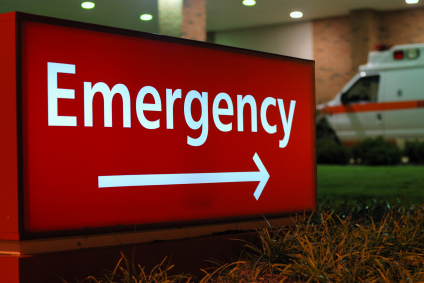 Nearly one-third of Americans said they or a family member have put off seeing a doctor for fear that they cannot afford treatment, according to a recent Gallup poll. Another poll, also by Gallup, found that cost now is seen as the nation’s most urgent healthcare problem, edging out access to care as the top concern.
Nearly one-third of Americans said they or a family member have put off seeing a doctor for fear that they cannot afford treatment, according to a recent Gallup poll. Another poll, also by Gallup, found that cost now is seen as the nation’s most urgent healthcare problem, edging out access to care as the top concern.
The polls were conducted in November 2013 as attention was focused on the approaching start of major provisions of the federal Affordable Care Act, better known as Obamacare.
Among those most likely to avoid the doctor’s office are low-income individuals and young adults, ages 18 to 29, researchers found. Those groups also are least likely to have insurance. However, even among those with insurance, one-quarter of Americans said they have delayed medical treatment, likely due to high out-of-pocket costs.
Two of the major claims of proponents of the new healthcare law are that it will reduce costs and provide access to millions of people who currently are uninsured. Those goals are supported by many Americans, Gallup polling shows.
At the same time, dislike of the healthcare law has increased sharply, with the percentage of poll respondents citing “government interference” as a major issue rising from 2% in 2012 to 19% in 2013.
Most Americans say they will enroll in insurance policies and thus avoid paying a penalty for not being insured under the Affordable Care Act. As a result, according to Gallup officials, the percentage of Americans avoiding medical care should decrease, although it likely won’t be eliminated if high-deductibles continue to scare some people away.
In an October 2013 article in The New England Journal of Medicine, three physicians called for patients to be told as much about the costs of medical care as they are about the possible side effects of specific treatments.
The authors – Peter A. Ubel, Amy P. Abernethy and S. Yousuf Zafar – wrote that doctors have been reluctant to talk about costs, even though the financial burden adds to patients’ stress and can affect their health. Their research found examples of cancer patients with high medical bills who cut their spending on food and clothing or cut back the frequency of taking prescribed medications.
The article cited data from the Centers for Disease Control and Prevention (CDC) showing that about one-third of U.S. families in 2011 struggled to pay medical bills or defaulted on payment because of high out-of-pocket deductibles.
“We believe that given the distress created by out-of-pocket costs, it is well within physicians’ traditional duties to discuss such matters with our patients,” the authors wrote. “We can no longer afford to divorce costs from our discussion of patients’ treatment alternatives.”









